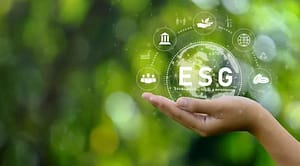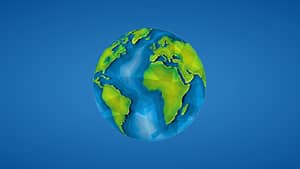
Beyond the Bottom Line: ESG Ratings – Procurement’s New Moral Compass
The world of procurement is undergoing a significant transformation, propelled by the growing importance of Environmental, Social, and Governance (ESG) factors.
Home » What are the United Nations Sustainable Development Goals, and what do they mean for banks and businesses?
Each goal integrates the others. Action in one area will affect outcomes in others, and development must balance environmental, social, and economic sustainability. Ending poverty and other deprivations must go together with strategies that improve health and education, reduce inequality, and spur economic growth – all while tackling climate change and preserving our oceans and forests.
The 17 Goals are:

















These goals give clear ambitions for policymakers, regulators, banks, and investors to help understand the symbiosis between the planet, economic activity, and economic development. The UN’s underlying aim is clear – We must take action using this unified framework to create a better and more sustainable future for all.
Taking this initiative and using the 17 SDGs, Coriolis Technologies has developed a real-time solution that can rate and track the sustainability efforts of any company and supply chain across the globe. The system automatically aggregates international trade activity and evaluates traded goods and services against the UN’s Sustainable Development Goals. The solution, built with the direct support of global banks and trade organisations, offers a non-biased and scaleable platform that raises flags so that banks and businesses can take action and ensure company activity is compliant anywhere in the world.
Within this Sustainability Rating system, Businesses can understand precisely what aspects of their company activity are sustainable and what aspects are not. This insight is possible because the platform measures traded goods and services at both an inbound and outbound distribution level against the 17 SDGs. The system also looks at potential compliance issues across company personnel, checks activity against domestic and international regulations, and allows businesses to add further context to their ESG activity rating. Businesses can then export their ESG certificate and regulatory report.
Banks can search and explore business ratings based on ESG activity for compliance purposes. The system shows how individual companies fair against the 17 SDG while also benchmarking the businesses within their associated industry. Banks can view the business ratings against domestic and international regulatory frameworks such as EU Taxonomy, Sustainable Finance Disclosures Regulation, and US Sustainability Accounting Standards Board Regulations. The activity check includes company personnel information to flag any potential governance issues. Banks can batch score the activity of multiple companies at once, and the system allows aggregate and average scores of company lists.
This solution offers a unique understanding of how sustainable respective business activity truly is for both banks and businesses. The system’s design allows for scalability and the integration of broader and relevant regulations, and using this approach against the imperative for finding a quick and straightforward measurement creates a compelling call to action from which the industry can grow. Mapping business activity against the 17 SDGs gives a universal framework that demonstrates how industry players, from SMEs to conglomerates, can play their role in achieving a better and more sustainable future for all.
*Sustainable Development Goals images and assets used in accordance with UN guidelines.
Our Sustainability tracking solution is currently in being tested by our Kosmos Working Group (KWG): a non-competitive working group, including banks, insurers, and professional bodies. Click here to learn more about the KWG. We expect to open the solution up to a wider audience towards the close of 2022.
Submit your details below, and we will add you to our database and update you on the progress of development and the release date of version 2.0.
Please note, your online safety and security are important to us. We understand the sensitivity of your data and will never pass your information on to any third party. Your data will be added to our private database so that we can notify you of any upcoming releases and send you our monthly updates.

The world of procurement is undergoing a significant transformation, propelled by the growing importance of Environmental, Social, and Governance (ESG) factors.

TradeSun and London Forfaiting Company (LFC) have announced an agreement for LFC to leverage TradeSun’s digital technology to advance their risk and compliance capabilities, with focus on ESG sustainability, across global trade.

Whether ESG and sustainability-linked initiatives and policy meet the needs of developing economies remains a topic of intense debate